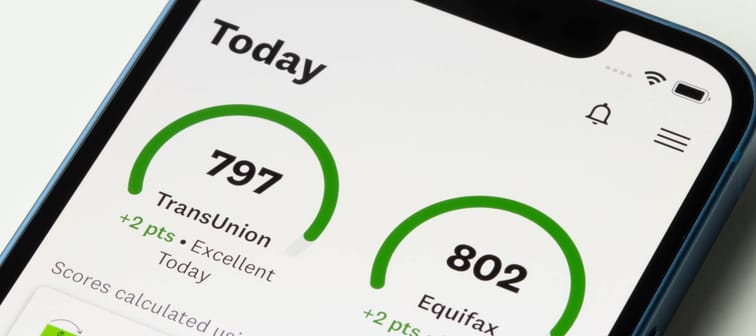Canadians use COVID to repair credit
Last summer, Statistics Canada revealed total household debt in the country was sitting at $2.5 trillion.
While Canadians added nearly $100 billion in mortgage debt in the first year of the pandemic, researchers noted that most other types of debt had been significantly reduced — led by those people with the lowest credit scores.
The conclusion they came to was Canadians were “prudently” using their savings during the pandemic to catch up on their outstanding balances.
Putting the focus on dealing with debt first is exactly what Stacy Yanchuk Oleksy, the CEO of Credit Counselling Canada in Agassiz, B.C., would recommend.
“What's more important than everybody worrying about their credit score is people understanding what it actually means,” says Yanchuk Oleksy.
More from Money.ca
- 5 Wise Money Moves to Make Before the BoC Raises Rates
- With Financial Discussions More Taboo Than Sex These Days, It's Time to Have 'The Talk'
- The Best Tax Software for 2022
Empower your investments with Qtrade
Discover Qtrade's award-winning platform and take control of your financial future. With user-friendly tools, expert insights, and low fees, investing has never been easier.
Start Trading TodayWhat does it actually mean?
In Canada, there are two main credit bureaus: TransUnion and Equifax. These two companies collect information from creditors across the country to create your credit report. From that report, you’ll be assigned a score between 300 and 900.
There are a few factors that influence your score and they’re each weighted differently.
As payment history is one of the most significant factors impacting a person’s credit, Yanchuk Oleksy says the behaviour that tends to tank someone’s ratings are late or missing payments.
Credit utilization is the next most significant factor. Yanchuk Oleksy says many people don’t realize that under this category, even if you pay down your balance in full before it’s due, your credit still suffers if you’re borrowing close to your limit regularly.
“The credit system is incredibly confusing in Canada — what you would intuitively think would build your credit … reduces your credit score,” says Yanchuk Oleksy. “Understanding the system allows you to make better, more informed decisions about money.”
Aman Anand, director of credit risk for TransUnion in Burlington, Ont., adds that beyond becoming familiar with the credit system and sticking to good credit behaviours, consumers should also check their credit report at least once a year.
Both TransUnion and Equifax make it easy for consumers to dispute any inaccurate or incomplete information on your credit report. Cleaning up your credit report can be a bit of a process, but it should also give your score a nice boost once you’re done.
After that’s done, it’s just a matter of staying on top of those good behaviours.
“We're not suggesting you don't apply for credit,” says Anand. “If you need it, of course you should apply for it, but be mindful of how you manage it.”
Avoid making credit issues personal
The next biggest mistake Anand sees is that many people feel their credit score is a reflection of their personal value, something Yanchuk-Oleksy sees as well.
And she adds it’s unfortunate so many people tie their self worth to their net worth — because that often only results in them trying to hide their financial problems rather than dealing with them head-on.
“When people are not doing so well with their money, they actually feel dumb, they feel embarrassed, and worse, they feel ashamed,” says Yanchuk Oleksy. “And so they often don't seek help.”
So how does someone know when it’s the right time to work on their credit score?
“When it comes to money, the sooner the better,” says Yanchuk Oleksy. “It's kind of like health issues, you don't want to wait till you've got a grapefruit-sized growth hanging off your leg, you want to go when there's the first sign of pain.”
She adds it’s important to remember that credit scores fluctuate. You’ll face a ding when you apply for a new account or close an old long-standing one. If you make a big purchase on credit, you may drop a few numbers.
But if you stick to the behaviours of a good borrower: diligently and consistently making payments on what you owe, everything will eventually come out in the wash, says Anand.
And most importantly, you’ll feel more in control — something Yanchuk Oleksy says can have a profound effect.
“People feel more confident — they feel more competent,” she says. “And they make better decisions. Because … now you're in the driver's seat with your money, and you can steer your car where you want to go with your money.”
Trade Smarter, Today
Build your own investment portfolio with the CIBC Investor's Edge online and mobile trading platform and enjoy low commissions. Get 100 free trades and $200 or more cash back until March 31, 2025.








